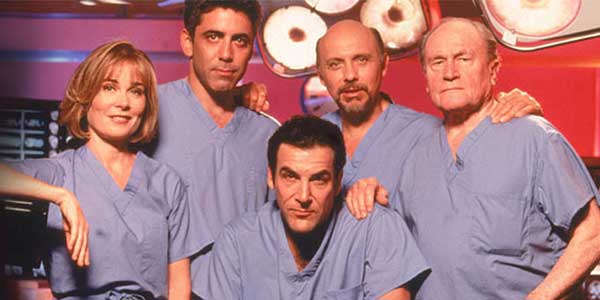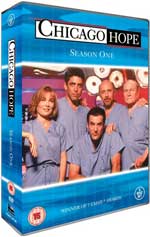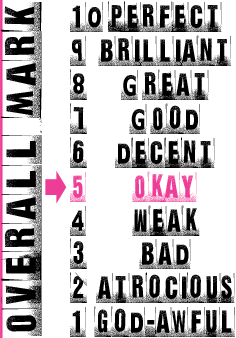
Director: Various
Running Time: 900 mins
Certificate: 15
Release Date: March 5th, 2012

For some reason in 1994, American TV decided that the world would only be interested in hospitals if they were located in Chicago. In the third week of September of that year, both ER and Chicago Hope debuted on different US TV networks, both set in the Windy City. While ER became a ratings sensation, Chicago Hope went slightly more under the radar, but nevertheless lasted a fairly impressive six seasons.
For the first time anywhere in the world, the first season of the show hits digital disc, taking us into the world of the surgeons at a private charity hospital, whose complicated personal lives are matched by a series of weird and wonderful medical cases. It’s a serviceable enough idea, and indeed it’s been done plenty of times before and after, however there’s not a huge amount about Chicago Hope that really makes it stand proud of the pack, even if it is fairly entertaining.
Created by David E. Kelley, the show includes his trademarks, such as dealing with hot button topics and creating situations that deal directly with moral, social and philosophical problem. The series sits at an interesting point in Kelley’s career, after he’d learnt the TV craft on the likes of LA Law and Doogie Howser, but before he became a virtual one-man TV machine with the likes of Ally McBeal, Boston Legal and LA Law. Chicago Hope is interesting as you can see Kelley starting to play with the TV form, which would become a much bigger part of his later work. He knows the ridiculousness of what happens in TV shows, and you can see Chicago Hope hinting at that, before the likes of Ally McBeal openly mocked those conventions. It’s also true that for a medical show, it spends a lot of time in court, largely because it’s a good excuse to get people to make big speeches about morality and social issues.
It’s not a brilliant series, but it is fairly entertaining, although the opening episodes do have issues trying to find its tone, with the series swinging wildly between comedy and drama, while searching for something to anchor it. Things calm down about halfway through though, and it’s an easier watch from then on. Mandy Patinkin is rather annoying as slightly mental but brilliant Dr. Jeffrey Geiger, but the rest of the ensemble, including Adam Arkin, Thomas Gibson, Hector Elizondo and the future director of Battleship, Peter Berg, are all very good.
The whole thing unfortunately feels a little old hat, as it lacks the energy and drive that ER brought to shows like this. The series tries to make up for this with increasingly high stakes storylines, which ensure it’s watchable without ever being all that great.
Overall Verdict: Chicago Hope is interesting for being one of the shows, along with Picket Fences, with which David E. Kelley first started to play around with the conventions of TV, but it’s certainly not as good as what he later came up with, when he realised that TV drama and farce are closer than most realise.
Reviewer: Tim Isaac





Leave a Reply (if comment does not appear immediately, it may have been held for moderation)